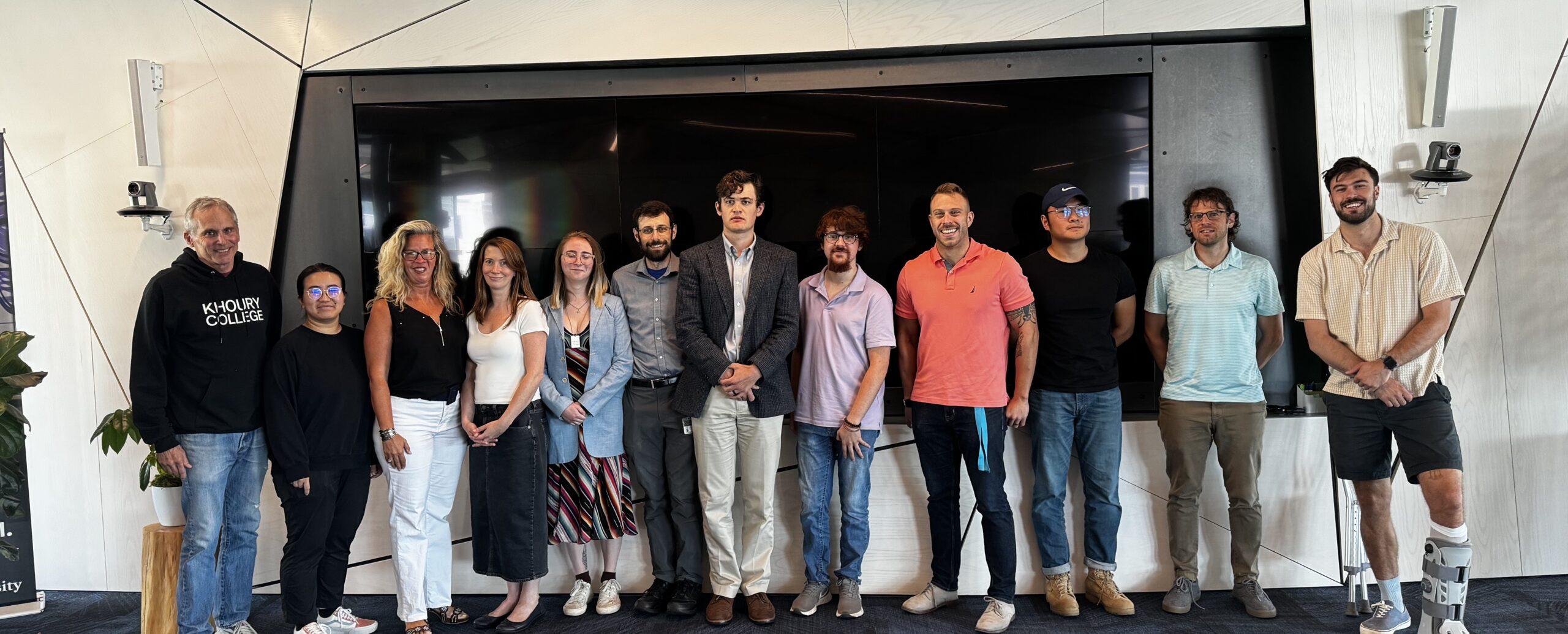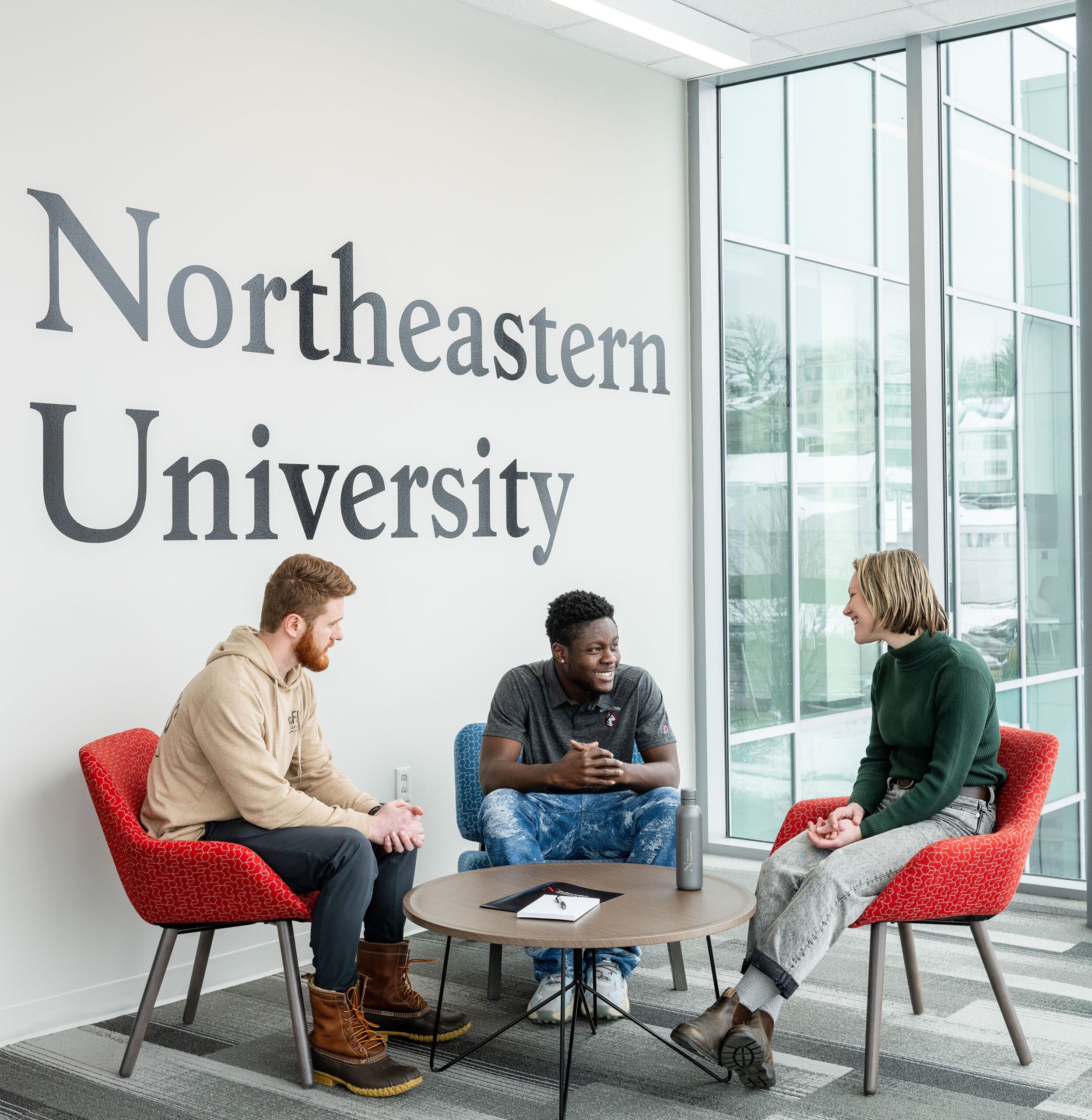
Roux Summer Research Interns Take on Wind Power, Autism, Flooding, and More
As the summer comes to an end at Northeastern’s Roux Institute, a group of research interns gave an audience of Roux faculty and staff members a sneak peek into some of the groundbreaking research they’ve been working on over the past couple of months.
The Roux Institute summer research interns presented on a wide range of topics, highlighting how tech and AI are uncovering solutions that will help with things like improving wind power performance, identifying land prone to flooding, improving sleep behavior in children with autism, and more.
The interns, who were a mix of students both from the Roux Institute and visiting from other universities, spent the summer at the institute conducting research and capstone projects with Roux faculty and research staff, unlocking innovative ways to use technology to solve challenging issues.
Qian Yin, a Roux graduate student currently earning her master’s degree in data science, spent the summer working on a capstone project that focused on developing an approach to identify flooded areas from Sentinel-2 satellite imagery utilizing image segmentation techniques.
Yin worked on the project with Roux Associate Professor of Computer Science Philip Bogden, who connected Yin with the United States Geological Survey. USGS ended up becoming an important stakeholder in the project, providing Yin with important data and funding.
“[Yin] did an incredible amount of work on her fascinating summer research project working with Dr. Sam Roy from the USGS in Augusta,” Bogden said. “Her project started what promises to be an ongoing relationship in which Roux’s data science students help the USGS to mitigate the impact of a changing climate.”
Summer internships at the Roux Institute provide students with a unique opportunity to work on projects with our research faculty and staff that are interdisciplinary and tangential to their studies at their home university. This exposes them to valuable skills for both continuing in academia or developing careers in industry.
NATHAN POST
Research Associate Professor, Northeastern University's Roux Institute
Yin noted that the project significantly deepened her understanding of the research process and sparked further interest in pursuing this work.
“This experience really strengthened my interest and confidence in pursuing a data science career,” she said. “I enjoyed solving the challenges I encountered. I might consider applying for a PhD in the future.”
Aiden Gettemy, a PhD student at the University of Texas at Dallas studying applied mathematics, spent his summer working on a project addressing bias in wind turbines. Wind turbines, he explained, can create a wind wake that affects the power generation of a turbine positioned within that wake. He worked on a tool that helped predict and model this bias, and said he is realizing real results that he hopes will help the wind industry.
“Before this summer I was already interested in the intersection of engineering and mathematics, but this experience gives me a clearer picture of how my role fits into solving real-world problems,” Gettemy said.
Roux Research Associate Professor Nathan Post, who worked with Gettemy on the project, says mentoring students on research is an important part of his job.
“I love working with students from a range of backgrounds because they’re able to bring their skills and expertise in their fields to our collaboration, just as much as I am able to guide them on developing solutions for things like applying machine learning to mechanics, materials, or wind energy applications.”

Zheng Yin, a Roux graduate student earning his master’s in data science, said his capstone project helped him better understand his work as a software engineer. His project used Google Earth Engine to extract land use information from Maine between 1985 and 2023 and quantitively analyze the land, categorizing it as developed, forest, agriculture, forest, etc. The result is a tool that allows users to see the current state of land in Maine and a comprehensive picture of how land use has changed over the last few decades.
Other presentations included Brooklyn Tory, who presented on using Fitbit data to better understand challenging sleep behaviors in children with Autism, and John Peters, who worked on finding patterns in mutated DNA to better understand and predict a fatal disease called Polyomavirus.
Post stressed what a great opportunity summer research internships are at the Roux Institute.
“They provide students with a unique opportunity to work on projects with our research faculty and staff that are interdisciplinary and tangential to their studies at their home university,” he explained. “This exposes them to a broader range of applied research, technology, and collaborations – valuable skills for both continuing in academia or developing careers in industry.”
